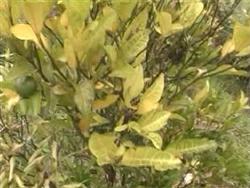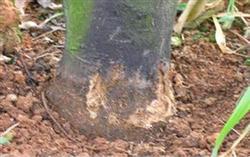Citrus fruits are rich in more than 30 nutrients.

At present, there are more than 30 kinds of human health substances in citrus fruits, including flavonoids, monoterpenes, coumarins, carotenoids, propanols, acridone, glycerol lipids and so on. Flavonoids there are three types of flavonoids in citrus fruits: ⅰ type is a general flavonoid represented by rutin; ⅱ type is a flavanone unique to citrus fruits such as hesperidin and naringin; ⅲ type is a special flavonoid containing polymethoxy group, such as citrus flavonoids, which has not been found in other vegetables and fruits. Carrots are well known that many vegetables and fruits contain carotenoids, which play an important role in human health. The research on the physiological efficacy and mechanism of carotenoids has developed rapidly in recent years. Some health foods have been developed and industrialized production has been realized in China. Coumarin in citrus is an anticancer substance that has been fully judged by scientists. The research results show that there are two main ways to form the anticancer effect of coumarin: one is that coumarin detoxifies cancer substances through the action of detoxifying enzymes, and the other is to antagonize and restrain the activation of its metabolism. The effects of these two aspects mainly produce the results of restraint in the initial stage of cancer. Monoterpene and triterpene citrus contain a large number of terpenoids represented by (r)-limonene. Terpenes are the peculiar aromatic substances of citrus, which have the effect of calming the central nervous system. Recent studies have also confirmed that terpenes can reduce stress and eliminate fatigue. Limonin is the bitter component of citrus juice beverage, and the content in citrus fruit is about 100-200ppm. However, recent studies have found that limonin also has the effect of tumor control. Other chemicals here refer to the three compounds found in citrus: phenylpropanol-like alcohol, acridone and glycerol lipids. It can be said that the whole body of orange is a treasure, and its pulp, peel, nucleus and collaterals can be used as medicine. The exocarp of an orange is called "tangerine peel" when it is sun-dried. The white reticulated silk collaterals on the orange flesh, called "orange collaterals", contain a certain amount of vitamins (vitamin products, vitamin information) p, which has the effects of dredging collaterals, resolving phlegm, regulating qi, relieving stagnation and so on. Orange kernel taste bitter, non-toxic, rational qi analgesic effect, can be used to treat hernia, low back pain and other diseases. Even orange root and orange leaves can be used as medicine, which has different effects such as soothing the liver, invigorating the spleen, and stomach. Eat more oranges to prevent alcoholic liver. Orange flesh taste sweet, nutritious, but because of the common attribute of cold fruit, so weak spleen and stomach should not eat more. There are numerous dietary prescriptions for oranges, such as damaging body fluid causing thirst on the lips, you can drink more orange juice, which can not only replenish water, but also increase nutrition. In addition, the root also has the results of treating stomach cold vomiting, qi stagnation, food accumulation, indigestion and so on.
- Prev

Introduction and control of citrus planthopper
Citrus planthopper [Diaphorinacitrikuwayama] belongs to Homoptera, Caryophyllaceae. It is an important pest in the tender shoot stage of citrus, which mainly harms citrus, as well as Rutaceae plants such as Jiuli incense and yellow bark. caused damage by sucking juice on young shoots, young leaves and new buds of adults and nymphs. The young shoots of the victims.
- Next

Control measures of Citrus foot Rot
Distribution and harmful symptoms: foot rot, also known as skirt rot, is a root and neck disease, which occurs in all citrus areas in China. It harms the citrus root neck and the main root cortex, and the diseased bark is brown with the smell of lees and often exudes gum. Under the dry condition, the disease part cracked and hardened, and the boundary between it and the healthy part was obvious. At the beginning, only the tree table is endangered.
Related
- Moge, come on! The staff of the peasant association in the producing area of cantaloupe were frightened when the crowd gathered.
- Causes and Solutions of low Fruit setting rate of Apple
- Symptoms and control measures of passion fruit virus disease
- Fruit growing lesson: how do apple orchards keep high yields?
- Can you build orchards in the mountains? What are the pros and cons?
- How to manage the coloring period of Crisson grape?
- This paper introduces the processing technology of two kinds of fig products.
- How much is a month for retired teachers in rural areas by 2020?
- How can strawberry planting increase sugar content? We should pay attention to management in many aspects.
- What are the cultivation techniques on how to improve the yield of golden fruit?

